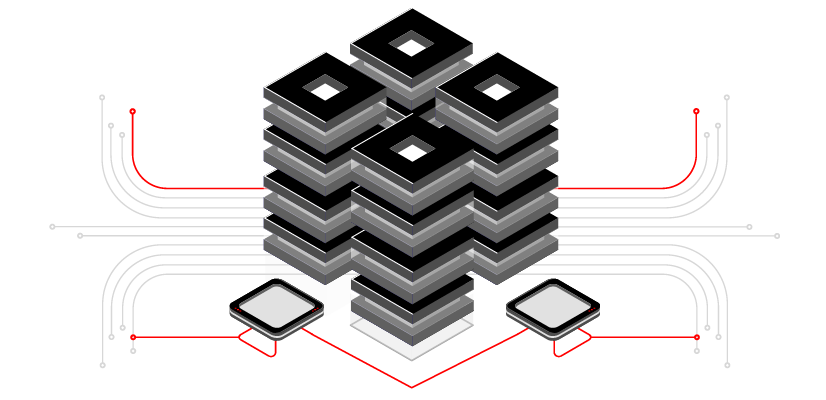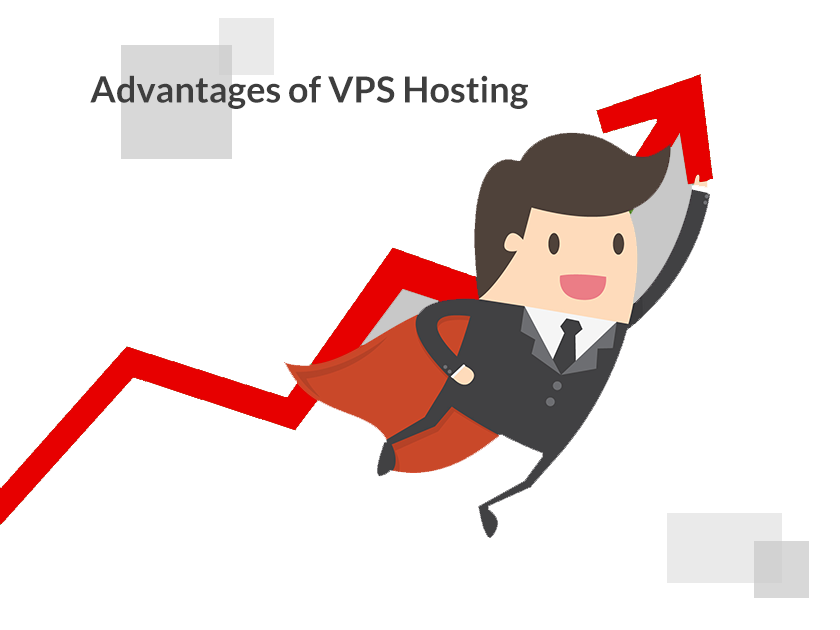
Virtual Private Server or VPS, for short, is a hosting service that can be chosen for your website. So, what is VPS hosting? Well, in short, it is a technology that shares the resources of a dedicated server amongst multiple websites. The main difference between VPS and regular hosting is its stability. If you compare shared hosting to a VPS, you’ll see that you don’t have enough shared hosting resources. For example, speed, storage, and, most importantly, security is lacking in a shared hosting plan.
In this article, we would like to discuss the differences between VPS to shared hosting and dedicated hosting as well as introducing you to some of the features you should look out for when buying VPS hosting. Without further ado, let’s begin.
WordPress VPS Hosting
As mentioned above, a VPS stands for a virtual private server, and it gives you the resources and security of a dedicated server that you can use for your website. A WordPress website may be rather RAM and CPU demanding due to some plugins or themes that you have installed on your website. Therefore, hosting providers have optimized regular VPS hosting to be used for a WordPress website.
A VPS can adapt to your WordPress’ website’s growing needs. It can expand, and you have full control over the website and software that you may need to run a few plugins on your website. WordPress can get installed on a VPS with a click of a button. When purchasing a WordPress VPS, you have two options; you can either get Windows or Linux. However, we highly recommend Linux for a WordPress website since it runs it better and more smoothly.
VPS VS. Shared Hosting
So, you are just starting. Which server plan you should go for? A VPS? Or a shared hosting? Well, a shared hosting environment sounds and feels like sharing your house with a lot of people. Shared hosting works the same. Your resources will be shared with other websites, such as CPU, RAM, and even storage.
Shared hosting is the cheapest hosting plan amongst all hosting plans out there, and there are limitations to it. For example, you get limited bandwidth, RAM, CPU, and storage. In addition, your website may run really slow.
On the other hand, using a VPS sounds like you are renting a house with only a shared pool or gym. A VPS is often used for a website that expects rapid growth, has a considerable budget to invest, and expects a high volume of traffic each month.
VPS VS. Dedicated Hosting
Dedicated hosting is the big league when it comes down to hosting environments. Let’s go back to our previous example. Imagine, instead of renting out a house, you rent out the entire building. You can do pretty much exactly what you want to do without having any limitations. By purchasing a dedicated server, you have the whole server to yourself, and you don’t even have to share portions of the resources you get.
You are in control of what software gets installed on the server, and you can configure the security of your server. However, using dedicated hosting may be rather difficult if you don’t have any technical knowledge on how to run a dedicated server. Thus, you may have to hire a team of experts to manage your server, which can be costly.
On the other hand, a VPS is a dedicated server. Still, it is shared between multiple websites and each of them have their own resources, for example, if the server has the total of 16 GB of RAM, each website gets 8 GB. Generally speaking, a VPS is best for medium websites, and a dedicated server is best for a large website where you need a ton of resources to run the website every month.
Advantages of VPS Hosting

So, what are the advantages of VPS hosting? There are many benefits of having a VPS server. Let’s get to them.
Scale-able
It’s important to say a VPS can be expanded, which is why it’s perfect for websites that are expecting a high number of traffic each month. If that number goes higher and your website needs more resources, you can always ask the hosting provider to give you more resources for a fee.
Security
Compared to shared hosting, a VPS is like having a separate house. Even if there is another website on the VPS that you are on, they don’t have access to your resources at all. The resources you get is dedicated to you and your website. Therefore, if for any reason that website is breached, you won’t be affected by it.
Cost-Efficient
If you are looking for dedicated resources, we recommend a VPS because it is way cheaper than a dedicated server, and you get the same resources as you would get with a dedicated server on a smaller scale but still as powerful.
Best VPS Hosting
Many great hosting providers provide good VPS hosting. However, when choosing a VPS, you need to look out for the uptime, features, disk space, as well as the price the server is going for. Generally speaking, you should go for a VPS that has the most uptime. Uptime is basically the time your website is online. For example, shared hosting may have 50% uptime, which means only 50% of the time your website will be online. However, most VPS providers have 99% uptime, representing 99% of the time your website is up and running.
Conclusion
In this article, we discussed VPS, which is short for Virtual Private Server. In addition, we compared VPS to a shared hosting and a dedicated server. A dedicated server (hosting) is the most powerful hosting that you can purchase with your budget. However, are you willing to spend hundreds of dollars on your medium level website? The answer is probably no, so VPS is generally recommended to medium-level websites that are much cheaper than a dedicated server but offers the same power on a smaller scale.
Rackset will provide you with a cost-effective VPS Hosting with a high security. Just choose your a plan which meets your needs:
Leave a Reply